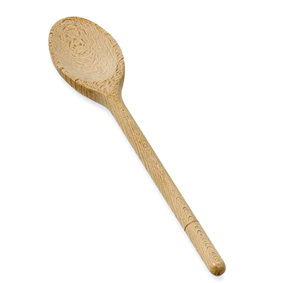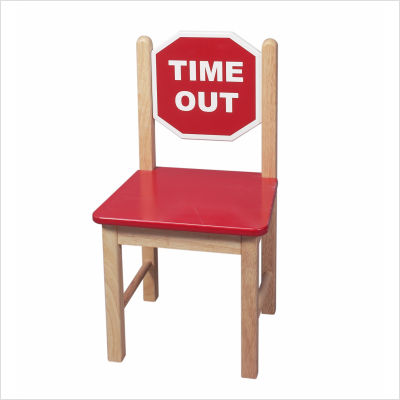
“Contrary to what you have read in popular literature, [spanking], a firm but loving approach to child rearing, will not harm a toddler or make him violent. [Instead], it is most likely to produce a healthy, confident child.” ~ Dr. James Dobson
Welcome to the June edition of Tweens & Teens. I can’t believe it’s already summer. And so, ladies and gentleman, bring on the beaches without the oil, vacation is coming up soon!
This month I’ll talk about whether spanking your children is okay. In talking to psychologists over the past several years, I’ve found that most would say ‘No’ and would instead recommend time-out, logical and natural consequences, or some other form of non-corporal discipline. In fact, a lot of research will tell you that the more a child is spanked by age 3, the more aggressive he or she will be by age 5.
HOWEVER…I am one psychologist who is an exception to this rule. In fact, I don’t think spanking makes kids more aggressive at all, if it’s used properly.
Noted psychologist and author Dr. James Dobson wrote that he endorsed spanking for two reasons: (1) Outright defiance, and (2) Dangerous behaviors. I agree with Dr. Dobson completely. For example, I remember when my son, who was about 4 years old at the time, pushed our neighbor’s child, who happened to be in her baby carriage, into the middle of the street before we even knew what was going on. This is dangerous behavior (duh), and you better believe he got his tail blistered. I also remember when his mother asked him to do something and he leaned forward, ever so slowly, looked her right in the eyes and said, “No, and you can’t make me.” Um…yeah, we really can. But not before you heard a Whack!
When times like these occur in your family, and we all know they occur in everyone’s  family, I recommend being prepared. For example, we used a “Spanking Spoon”. What is that you ask? Excellent question…it’s a wooden spoon whose sole purpose in life is to be used as a tool that helps discipline our children.
family, I recommend being prepared. For example, we used a “Spanking Spoon”. What is that you ask? Excellent question…it’s a wooden spoon whose sole purpose in life is to be used as a tool that helps discipline our children.
We kept the Spanking Spoon on the kitchen counter where everyone could see it. It was propped up against the wall and had no other purpose. If you use your hand to spank, then here is what will likely begin to happen. When you have to scratch your nose (or wherever else, if you’re a guy) and you raise your hand, your child may instinctively jump or cover his behind for fear he is about to be spanked again. The Spanking Spoon takes that out of the equation.
Also, we would only give him one single pop to the naked bottom (or two if we missed because he was jumping around like a young gazelle). The purpose is to punish him, not take our anger out on him.
And while we’re on the subject of punishment, let me take you back to school for just a moment and explain the difference between punishment and reinforcement. Punishment is used to decrease behavior while reinforcement is used to increase behavior.
For younger children, you will initially have to use external rewards as a method of reinforcement. Life just works that way. Things start on the outside and move to the inside for all areas of development. For example, let’s use language. Children talk to themselves when they’re going to sleep or playing by themselves (external behavior), but as they grow older, they begin to start thinking instead (internal behavior). Actions are the same way…we need external rewards for a while and then, as we develop, internal rewards, such as personal satisfaction, come into play. When that time comes, we will actually do something because it’s the right thing to do. This is how morality develops.
Now, here’s a specific example of punishment and reinforcement. If your child is being outright defiant, you want that behavior to decrease…so, you punish. BUT, you also want compliance to increase, so you have to make sure that you reinforce those behaviors. Reinforcement does not mean buying them a go-cart or giving them your Visa card with a $50 limit on anything they want to buy (I have heard both of these scenarios…ugh). I will simply tell my child, “Thank-you” and that’s good enough. There are times, however, when an external reward is called for, but this usually involves actual work and/or chores. It is very much like our paycheck from our job.
This can, however, get tricky…suppose you tell your child to make her bed. Five minutes later you go in the room and “AHHHH” the bed is not made. So you punish her for not making her bed, right? WRONG. You want bed making to increase, so you don’t punish her for not making the bed. Instead, you punish what you want decreased, which is “Noncompliance”. So I would say, “I am punishing you, not because you didn’t make your bed, but because you didn’t follow my instructions. IF, however, you go into the room and the bed is made (thank the Lord), you can actually reinforce two behaviors: Making the bed and following your instructions. This will help increase the likelihood that both of these behaviors will continue to occur with more frequency.
I do want to add a brief word on that last example (making the bed). If I had gone in and the bed was not made, I would not spank the child. That, to me, is not outright defiance. There is some common sense as to the level of severity that needs to be taken into account. What I would do in that  example is use time-out. BUT…I would not put the child in time-out. Instead, I would put an object in time-out (obviously one that the child really, really, really enjoys). Objects and toys do not kick, scream, and yell while being put in time-out, so it is much easier.
example is use time-out. BUT…I would not put the child in time-out. Instead, I would put an object in time-out (obviously one that the child really, really, really enjoys). Objects and toys do not kick, scream, and yell while being put in time-out, so it is much easier.
We used our fireplace mantle to put the toy (or whatever we chose to put) in time-out. Then, I would tell William (my son) that the item is in time-out because he did not follow directions. Then, as he started being more compliant, I would actually move the toy towards the front of the mantle and, when it got to the very front, it came out of time-out. Really and truly, it was always about the same amount of time (20 minutes or so), but he didn’t know that. All he knew was that the toy had moved closer to him which meant he could have it back soon. What a sneaky dad I am.
If you do use time-out in which your child goes to a chair (which my family does depending on the circumstance), then make sure the chair is different than any other chair (just like the Spanking Spoon is different than any other spoon). We did this by simply putting a piece of black tape on the back of the chair to signify that it was the time-out chair. Then, using an egg timer, we set it for one minute per age of the child (e.g., 5 minutes for a 5-year old child). By the time they are Tweens, you should not need a time-out chair anymore. You may, instead, use grounding, which is essentially a long time-out.
And now…a synopsis for a quick and convenient reference:
Is it okay to spank your child under certain circumstances? Yes
Does it make them aggressive? If used correctly, then “No”.
Do I have to spank my 11-year old son now? No.
Does my 11-year old son listen to what I ask him to do and then follow directions? Most of the time.
Is he perfect? No.
Do I regret spanking him? No.
Will people disagree with me because they think spanking is wrong no matter what? Yes.
Will people disagree with me because they think spanking should be used more than just for defiance and dangerous behaviors? Yes.
If you disagree and have ideas or comments, I would love to hear them. (Click the big orange comment button below to share your thoughts.) Gwen and Shannon do not hold anything back when giving me comments or suggestions that have been made by readers.
This entire Tweens & Teens section is done each month so that we can all share ideas that will make our lives better and the lives of our children better. Just because someone has “Dr.” in front of their name doesn’t mean they know everything or that they don’t make mistakes. Please, feel free to comment…you have taught me much more than I could ever teach you. And for that, I am thankful.
See you next month.
billy


Thank you for being a voice of common sense! Spanking is a very effective ‘behavior modifier’ when used fairly and consistently. We’ve also found it to be a short-lived necessity – rarely have we had to use spanking after the age of 5, and in no way do our children doubt our love for them and their well-being. Fine article.
Thanks Rebecca for the comment and compliment.
Just like your 5 year old, I also have a 4 year old and we have to spank him less and less. In fact, it has been quite some time since we’ve had to do so and I think it is because we were, as you pointed out and were as well, consistent from the very beginning.
Thanks again for your comment and to others reading, please keep the comments coming.
billy
It’s rare to see a professional publish what has become an unpopular stance on discipline. Good job.
I really question parents when they write about spanking in a humorous way, as Billy did in this post. It’s almost as if they enjoyed it.
I also question spanking a bare bottom – I find this to be a humiliating way to discipline a child and given the multiple cases of child abuse across our state and country, I am not sure how this type of behavior can be condoned.
Has Billy ever thought of the child’s security or possible confusion to their clothes being removed for such a purpose? (This is in no way respectful to the child’s security.)
I am also tired of Christians having a narrow view of how we should discipline ‘the littlest among us.’ Enough of Dr. James Dobson – what about Dr. Sears’ approach to understand a young person’s world – our children are entrusted by God to us to guide and lead and that is a tremendous responsibility that should not be narrowly defined by only those that share your own view. I think of Jesus and the way he said, “Let the children come to me” in the gospels.
I understand spanking is popular in the conservative south, especially Arkansas, but given the staggering statistics of abuse in your state, i would hope that you would be a little more discerning in future publications on such things as ‘responsible spanking’ which in my mind does not constitute a bare bottom or discussing it in such a light manner.
“To whom much is given, much is expected” – let us remember this as we humbly advance on the journey of parenthood.
-Lindsay
Reply from Billy Jones:
Hello Lindsay,
I can certainly appreciate your comment and concern you expressed for the safety of our children. I share those concerns and witness firsthand with my job the damage that child abuse causes (way more than people would realize if they do not have this type of job); however, I do not feel that spanking children is equivalent to abusing children.
As I mentioned in the article, the purpose is to punish your child, not take your anger out on them. People who take their anger out on children are essentially abusing them and that is the exact opposite of what this article is intended to state.
I avoid spanking if at all possible; however, as I mentioned in the article, I do believe in spanking for outright disobedience and dangerous behaviors. Dangerous behaviors, by definition, would refer to the safety of the child and to not respond quickly and effectively would raise the likelihood that a similar behavior might occur. I cannot take that chance with my child, or anyone else’s child.
When my own son (at the time he was 4 years) pushed my neighbor’s child and her carriage into the road while cars were coming along, discussing this issue with him and allowing him to express his thoughts was inappropriate. He was not old enough to comprehend the meaning of “danger”. No 4 year old is developmentally able to comprehend that type of abstract terminology. Time-out was also inappropriate given the severity of the behavior. Spanking was, in my opinion, the best option.
Spanking on the bare bottom is done to ensure that I only have to spank them once. When my 4 year old receives a spanking (which is rare), this is done in the privacy of our own home and is never done in front of anyone, including his older brother. The purpose is to punish, not embarrass.
There are certainly times when discussion is absolutely the best response. This happens all the time with that same son, who is now 11 years old. My 4 year old also discusses issues with us, to the extent he can understand the content of the discussion. We encourage both of them to express their thoughts, including any disagreements they may have with our decisions. We allow them to speak their mind, as long as they are respectful. And they do that knowing that we will listen and appreciate their differences in opinion. But in the end, my wife and I have to be their parents, not their friends.
I do not spank my 11 year old now, not only because he is too old to spank, but because we took that initiative when he was 2-4 years old. He is very open with us and will ask us questions, or express disagreement, anytime he feels the need. We receive more hugs and “I love you” from him (and our 4 year old) than most other parents are blessed to have. And we are quick to respond with a hug and an “I love you, too”.
We are also very open about any sexual issues, questions, or concerns they may have, regardless of content, so that there is no confusion about how God made us and who we are. We do not belittle them or make light of any question or comment they may have, regardless of what it may be. Nor do we do not continually remind them of any negative behavior or punishment they may have received. After every punishment, we make sure they know that we love them and that it is their behavior that is unacceptable, not them as a person.
I thank-you again for your comment and hope this will continue to spark discussions on how we can all learn to better parent our children.
Take care.
billy